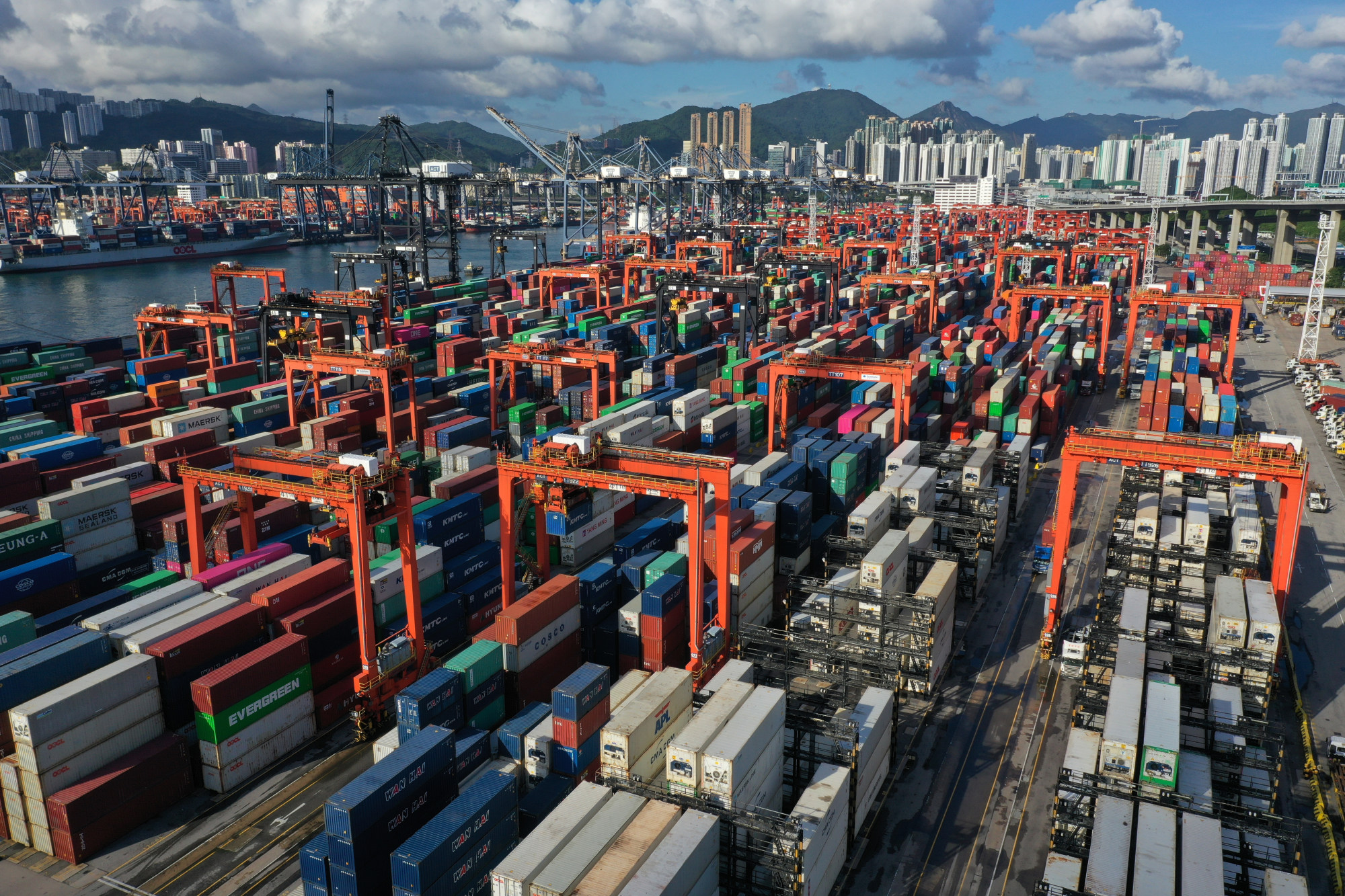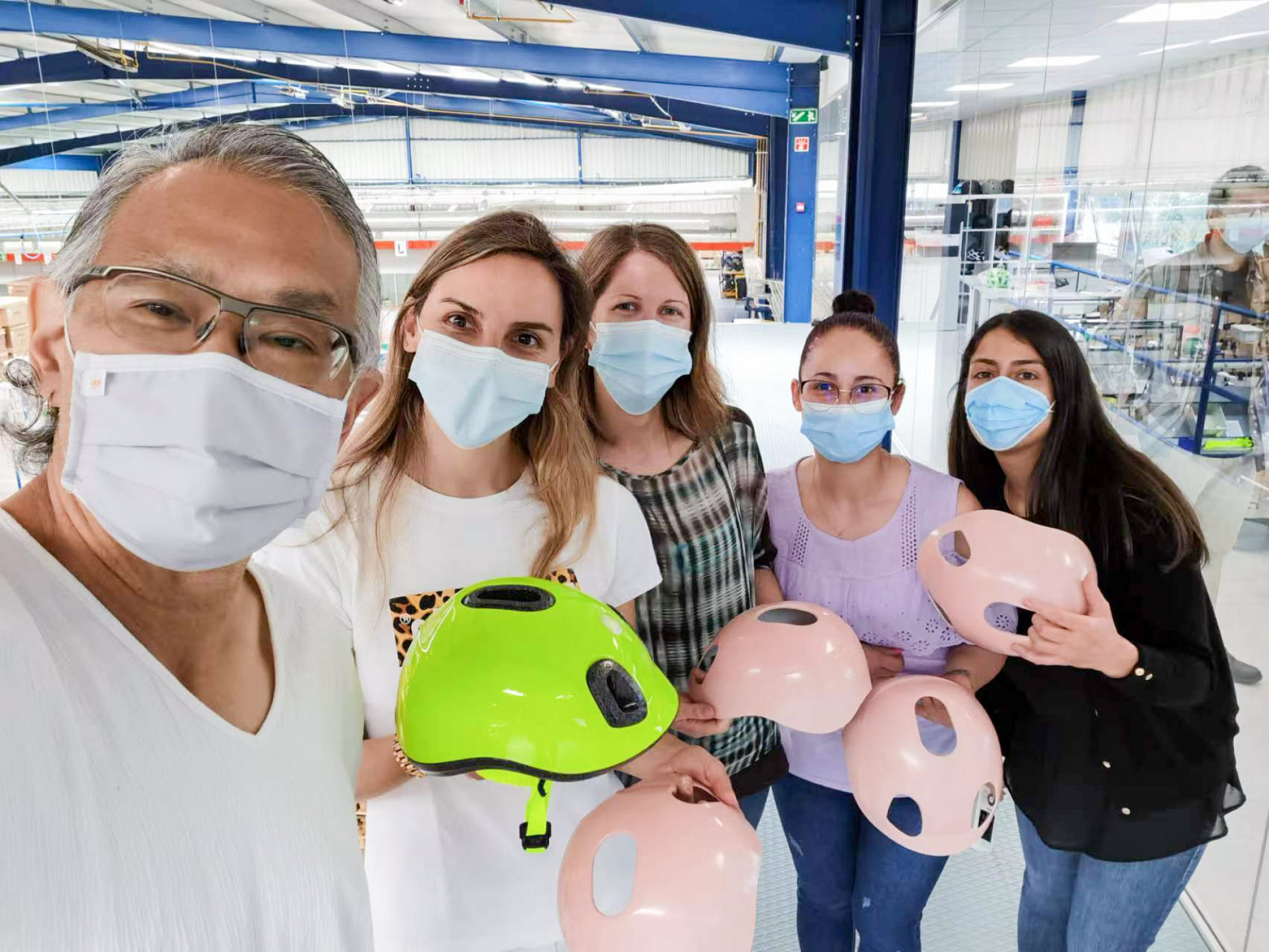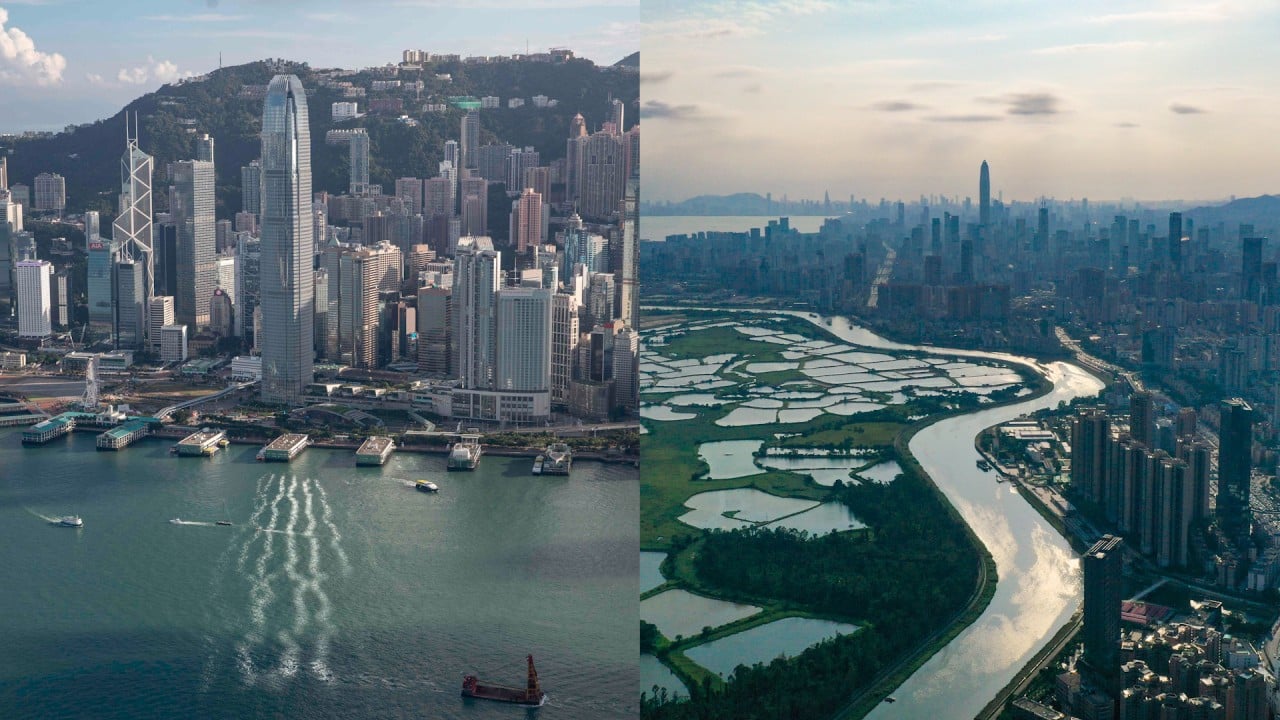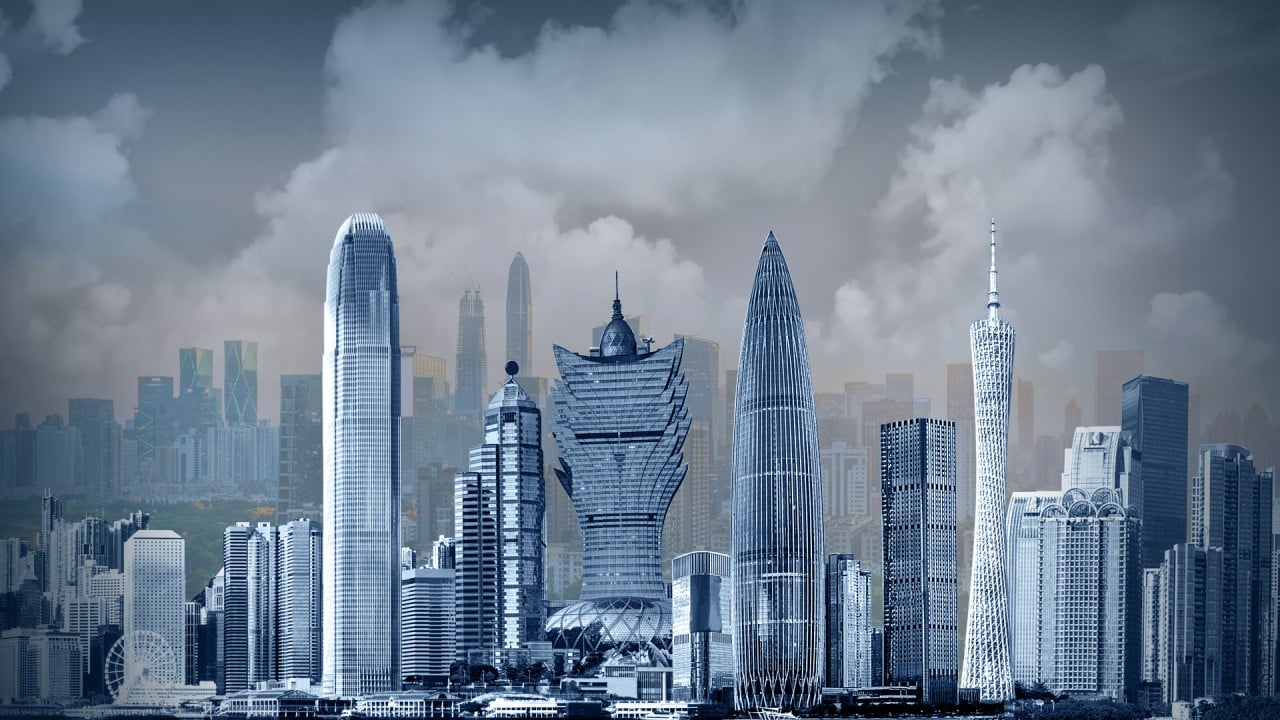
Hong Kong adjusts to new economic role after blazing trail for others
- Formerly China’s gateway to the outside world, it now faces stiffer competition from dynamic mainland cities
- Beijing’s ambitious Greater Bay Area development scheme offers promise of fresh opportunities
Entrepreneur Norman Cheng says Hong Kong remains a place where treasure can be found and fortunes made, even though others say challenges are mounting.
The business is one of the biggest maker of helmets in the world, employing more than 4,200 people and with a turnover of US$210 million last year.
He said that without Hong Kong’s business-friendly environment “none of this could have happened”.
Travellers trickle into Hong Kong, a crowd returns to Singapore
Cheng is one of hundreds of thousands of businesspeople who have found the ingredients for success in Hong Kong, which established itself over the years as an economic powerhouse in Asia and an open-economy model for cities in mainland China seeking to give their own economies a boost.
For many years, Beijing sent cadres and officials to Hong Kong on study tours to learn about Western business practices, law and order and clean governance as China transformed itself from a communist hermit state to a modern market economy.

Hong Kong’s unique influence was best illustrated in 1988 when late paramount leader Deng Xiaoping told mainland cadres that “now we have one Hong Kong, we need to build several more Hong Kongs in the mainland”.
But former president Jiang Zemin also warned after the 1989 Tiananmen crackdown that Hong Kong and the mainland should respect each other and “well water should not intrude on river water”.
Roland Sladek, a public relations expert who has worked for several leading global technology companies in Asia and Europe, outlined the competition it faced.
“In Hong Kong I was impressed by the tolerance of its multiple cultures, who lived side by side in peaceful coexistence, but I was more impressed by the extraordinary dynamism in Shenzhen,” said Sladek, who lived and worked in Hong Kong and Shenzhen from 2011 to 2017.
Now based in Europe as head of communications for a leading global technology company, he added: “Ongoing global tensions between the US and China, coupled with coercive pandemic measures make it more difficult but also more urgent to spend time in China, to live there, to set up business and to launch a venture.
“I am convinced that people need to meet and talk to each other, outside of the dealings of governments. If I were to advise a place to go to, I would probably choose a place in the Pearl River Delta, such as Shenzhen or Guangzhou.”
Peng Peng, executive chairman of the Guangdong Society of Reform, a Guangzhou-based think tank, said he believed Hong Kong was not irreplaceable, cautioning that the city also faced competition from Singapore.
“Hong Kong is still a model for mainland cities to learn from in terms of economic development, internationalisation, education, public health, open markets, the rule of law, professional services, etc,” Peng said.
“However, mainland cities are now fully open and [China] also boasts many talented people with great [international] experience.
“As a free port and an international financial centre, Hong Kong boasts a free flow of capital, talent and technology, but it faces challenges from Singapore [in those areas]. So Hong Kong needs to learn how to leverage its link with the Greater Bay Area in its competition with Singapore.”
The Greater Bay Area plan is an ambitious development scheme formulated by Beijing to connect Hong Kong and Macau with nine cities in neighbouring Guangdong province and grow the cluster into one of the most important metropolitan areas in the world.
Mei Lingchuan, an engineer who has lived in the US for many years, is one of the many overseas Chinese who have weighed up the respective advantages of Hong Kong and Singapore when planning their next career move.
“I am going to choose Singapore over Hong Kong because Hong Kong’s society has become more politicised than Singapore’s,” said Mei, who plans to move to the Lion City soon to pursue a master’s degree.
“There are many young Chinese in the US who have similar ideas like me and want to leave but don’t want to return to the mainland. I plan to be based in Singapore and commute between China and Singapore.”
Cheng said that while an apolitical environment would be more attractive to businesses, businesspeople did not pay much attention to political issues like the Hong Kong protests, adding that “none of these issues affect our view of Hong Kong”.

Zheng Yongnian, chairman of the academic committee of South China University of Technology’s Institute of Public Policy Research, said Hong Kong and other Greater Bay Area cities would focus on leveraging Hong Kong’s financial prowess to channel more international capital, especially venture funds, into the region, and establishing synergies with the area’s powerful research and development capability.
“Hong Kong shall work with cities in the GBA to expand the scale of the financial market through interconnection,” he said. “The development of the financial market in Shenzhen, on the other hand, can provide an internal stabiliser for Hong Kong in coping with external shocks, and greater development space for the city’s financial services.”
Wu Junfei, a researcher at the Hong Kong-China Economic and Cultural Development Association, a Hong Kong think tank, said Hong Kong could remain successful as long as it maintained its independent judicial system, civil society and core values such as respecting individual freedom while dealing with the political fallout from the 2019 protests.
“Hong Kong must maintain its judicial system and integration with the West,” he said. “Keeping the rule of law is a common consensus of Hong Kong people, and Beijing should cherish it.”
Additional reporting by Guo Rui




